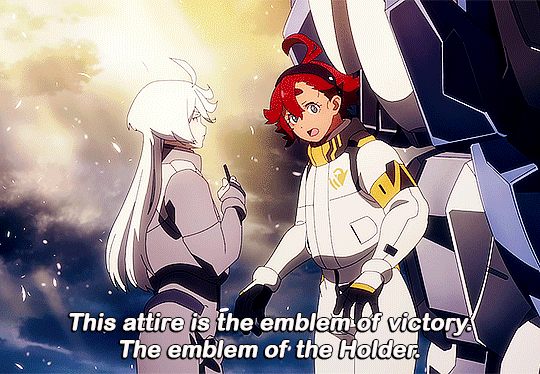#bezo philosophy
Explore tagged Tumblr posts
Text

Saw this sign on the way home and had to photograph it.
41 notes
·
View notes
Text
Remember the Britney Spears episode of South Park? Where it's revealed that we sacrifice young women's lives to some sort of harvest cult and the "next harvest was going to be even better" showing a picture of Miley Cyrus?
Look, say what you will about all the various ways South Park destroyed discourse for multiple generations (I personally contend that Trey Parker and Matt Stone exposed something that already existed rather than led to its creation). But it's undeniable that there is an American culture of finding young women and giving them a platform no person should have and repeatedly punishing them for having it.
That episode is more than 16 years old and we've learned nothing.
“While this is clearly another prime example of why the internet desperately needs to value media literacy again, it’s also glaring proof that Roan’s feelings of being under a microscope aren’t in her head. SNL ran a four-minute sketch that mentioned her name twice and it’s already spawned thousands of tweets and dozens of articles in less than 48 hours. And these are from people who say they’re fans of Roan. Now, imagine what people who dislike the “Hot To Go” singer might say the next time she so much as opens her mouth. “I’m still trying to catch up,” Roan said in July. “It’s been a really hard adjustment.” The singer has also been open about her struggles with managing her bipolar II disorder, dealing with stalkers, being grabbed by fans, and handling the stress that comes with a lightning-fast rise in popularity all at the same time. It’s no wonder she needed a break. Fans of Roan are quick to protect the pop star online. But in their effort to keep bad-faith actors from becoming the loudest voices in the room, the fans are quickly adopting the same energy that Roan herself is desperate to end. Maybe the best way to make sure your favorite artist’s favorite artist is able to stay in her dream career starts with knowing when to not take everything so seriously.”
— Chappell Roan, SNL, and Moo Deng: Can We All Chill Out?
406 notes
·
View notes
Text
There are only a handful of people who really "benefit" from exploiting labour and non-renewable resources. The global economic system reinforces the power that this handful of people have, even if they were a group that never crossed paths.
Your salary is negotiated in a vaccum, while the cost of living is relative. The price of all goods are determined to maximize company profit, but the return on those profits are decided by those with the most power and therefore incentive to benefit the most. The return is completely subjective to the person who has that power, and those who are close to that power are incentivised through financial and survivor bias, to reinforce the person who holds the power.
Complacency is greedy. There are people who make hundreds of thousands of dollars a year, sometimes millions. For doing absolutely nothing. Have you ever thought that being a manager isn't a 'real job'? That's because in most cases, it isn't a job. It's a formal stepping stone to reinforce hierarchies where people are incentivised to reach a higher salary. It literally exists to justify your inadequacy to change your social caste.
Europe, the new western world, the new global north has been built upon these structures for centuries, and it has been "science" and western philosophy that has justified the pervasiveness of "global economics" . Competition is not exploitation. Competition is incentive. Greedy individuals have successfully stunted technological growth by outsourcing exploitation at a global scale and forceably shaping the world using their power, influence, and propaganda. If you think your favorite tourist destination is innocent in this, you are hopelessly wrong .
#post capitalism#colonialism#nzpol#congo#africa#politics#economics#technology#elonmusk#Microsoft#wealth to prison pipeline#boring dystopia#cobalt#mining#climate crises#billionaire delusion#karl marx#philosophy#cobalt mining#climate change#labour#twitter refugees#met gala#jean paul sartre#copernicus#open science#technews#apple#mark zuckerberg#jeff bezos
18 notes
·
View notes
Text
i might have just started to solve my Ethical Crisis II. because like... it doesn't matter. it doesn't matter if i know what's ethically correct right now. I'm not influencing anyone else to do whatever, i just want to fucking experience this. I'm gonna do all of [thing] regardless of if i extensively think about the ethics of it, worsening my mental health in the process. so why just... NOT try to figure out the right answer?
i don't need to have all the answers right now. i just need to live.
#pov you accidentally watch the wrong video when trying to prepare for school project xD#I'M NOT EVEN KIDDING I WAS ONLY WATCHING THAT JEFF BEZOS VID BECAUSE SCHOOL PROJECT I CHOSE ON A WHIM#and now I'm here experiencing a fucking philosophical awakening at 21:00 while my poster is due tomorrow#(i barely started on it)#idk is this an adhd thing?#also i remembered i don't even know if happyness is the goal#because why not have different goals that don't correlate with happiness whatsoever?#what if i theoretically wanted to be unhappy???#(ok get me away from mental illness before i start preaching philosophy pls)#(also dw I'm prettyyy sure that that's only in pure theory)#(i want to be happy. i think.)#GOD YEAH I'VE ALREADY REACHED A GOOD CONCLUSION I DON'T NEED TO DO MORE PHILOSOPHISING THIS IS A TAD TOO MUCH#silly's musings
4 notes
·
View notes
Text

#sellingforstartups#entrepreneur#startups#kanye west#jeff bezos#epictetus#stoicism#stoic philosophy#Spotify
3 notes
·
View notes
Text
social media is the new wall street
musk, bezos, zuckerberg, trump are nouveau robber barons
so Socrates was right
#jayjuno#juno#jay juno#artist#alaska#philosopher#philosophy#thought#poem#poetic#social media#internet#elon musk#musk#trump#jeff bezos#bezos#mark zuckerberg#zuckerberg#justice#america#wall street#wallstreet#stocks#the billionaire class#billionaires#wealthy#classism#greed#socrates
0 notes
Text
🧠 Leveraging the cultural and innovative strengths of the United States can provide a pathway out of the current economic climate by focusing on several key areas:
1. Stimulating Economic Growth Through Innovation
Investment in Technology and Research:
- Continued investment in technology and innovation can drive economic growth. Technological advancements create new industries and job opportunities. For instance, the tech sector, including companies like Apple, Google, and Amazon, contributes significantly to GDP and job creation.
- Research and Development (R&D) spending leads to new products and services, boosting productivity and economic expansion. In 2020, the U.S. spent over $600 billion on R&D, which is critical for maintaining its competitive edge.
2. Boosting Consumer Confidence and Spending
Cultural Exports:
- The entertainment industry, particularly Hollywood and the music industry, can stimulate economic activity through global exports. Movies, music, and related merchandise drive significant revenue, which supports various sectors within the economy.
- Streaming services and digital platforms can expand their global reach, increasing revenue streams and promoting U.S. cultural products abroad.
3. Enhancing Workforce Skills
Education and Training:
- Investing in education and skills training ensures that the workforce can adapt to changing economic conditions and technological advancements. Programs that focus on STEM (Science, Technology, Engineering, and Mathematics) can prepare workers for high-demand fields.
- Online education platforms and alternative education models (e.g., coding bootcamps) can provide flexible and accessible learning opportunities, helping workers acquire new skills and improve their employability.
4. Fostering Entrepreneurship and Small Businesses
Support for Startups and Small Businesses:
- Encouraging entrepreneurship through grants, loans, and tax incentives can lead to the creation of new businesses and job opportunities. Startups, particularly in the tech sector, can drive innovation and economic growth.
- Public-private partnerships can provide the necessary support and resources for small businesses to thrive, fostering a dynamic and resilient economy.
5. Utilizing Soft Power and International Influence
Cultural Diplomacy:
- The global influence of American culture can be leveraged to enhance diplomatic relations and trade opportunities. By promoting cultural exchanges and international collaborations, the U.S. can strengthen its global position and create economic opportunities.
- Soft power, derived from cultural influence, can attract foreign investment and enhance the attractiveness of the U.S. as a business destination.
6. Encouraging Domestic Consumption
Stimulating Domestic Markets:
- Promoting domestic consumption through targeted fiscal policies can drive economic recovery. For instance, providing financial support to households can boost consumer spending, leading to increased demand for goods and services.
- Policies that support domestic industries, such as manufacturing and agriculture, can ensure that increased consumption benefits local businesses and worker.
7. Addressing Income Inequality
Note Sure Here: Universal Basic Income and Social Safety Nets:
- Implementing programs like Universal Basic Income (UBI) can provide a financial safety net, reducing poverty and inequality. By ensuring a basic level of income for all citizens, UBI can stimulate consumer spending and support economic stability.
- Strengthening social safety nets, including unemployment benefits and healthcare, can provide security for individuals, allowing them to invest in education and entrepreneurial activities.
Conclusion
By leveraging the cultural, innovative, and educational strengths of the United States, the economy can navigate through the current challenges and emerge stronger. Investment in technology, education, and entrepreneurship, combined with the global influence of American culture, provides a robust foundation for sustained economic growth and resilience.
References
1. [National Science Foundation](https://www.nsf.gov/)
2. [Federal Reserve](https://www.federalreserve.gov/)
3. [Harvard University](https://www.harvard.edu/)
4. [MIT](https://www.mit.edu/)
5. [Stanford University](https://www.stanford.edu/)
6. [Hollywood Industry Report](https://www.hollywoodreporter.com/)
7. [Music Industry Data](https://www.riaa.com/)
8. [Technology Market Analysis](https://www.techcrunch.com/)
9. [Global Innovation Index](https://www.globalinnovationindex.org/)

#business#myuberlife#cultureisdata#economics#mulfmab#beawolfaboutyourdream#federal reserve#philosophy#fashion#culture#art#jeff bezos#kendrick lamar#jey van-sharp#kwasi O Gyasi#winston peters#professor p#merica
0 notes
Text
Sigal Samuel at Vox:
There’s a dominant narrative in the media about why tech billionaires are sucking up to Donald Trump: Elon Musk, Mark Zuckerberg, and Jeff Bezos, all of whom have descended on the nation’s capital for the presidential inauguration, either happily support or have largely acquiesced to Trump because they think he’ll offer lower taxes and friendlier regulations. In other words, it’s just about protecting their own selfish business interests. That narrative is not exactly wrong — Trump has in fact promised massive tax cuts for billionaires — but it leaves out the deeper, darker forces at work here. For the tech bros — or as some say, the broligarchs — this is about much more than just maintaining and growing their riches. It’s about ideology. An ideology inspired by science fiction and fantasy. An ideology that says they are supermen, and supermen should not be subject to rules, because they’re doing something incredibly important: remaking the world in their image. It’s this ideology that makes MAGA a godsend for the broligarchs, who include Musk, Zuck, and Bezos as well as the venture capitalists Peter Thiel and Marc Andreessen. That’s because MAGA is all about granting unchecked power to the powerful. “It’s a sense of complete impunity — including impunity to the laws of nature,” Brooke Harrington, a professor of economic sociology at Dartmouth College who studies the behavior of the ultra-rich, told me. “They reject constraint in all of its forms.” As Harrington has noted, Trump is the perfect avatar for that worldview. He’s a man who incited an attempted coup, who got convicted on 34 felony counts and still won reelection, who notoriously said in reference to sexual assault, “When you’re a star, they let you do it. You can do anything.” So, what is the “anything” that the broligarchs want to do? To understand their vision, we need to realize that their philosophy goes well beyond simple libertarianism. It’s not just that they want a government that won’t tread on them. They want absolutely zero limits on their power. Not those dictated by democratic governments, by financial systems, or by facts. Not even those dictated by death.
The broligarchs’ vision: Science fiction, transhumanism, and immortality
The broligarchs are not a monolith — their politics differ somewhat, and they’ve sometimes been at odds with each other. Remember when Zuck and Musk said they were going to fight each other in a cage match? But here’s something the broligarchs have in common: a passionate love for science fiction and fantasy that has shaped their vision for the future of humanity — and their own roles as its would-be saviors. Zuckerberg’s quest to build the Metaverse, a virtual reality so immersive and compelling that people would want to strap on bulky goggles to interact with each other, is seemingly inspired by the sci-fi author Neal Stephenson. It was actually Stephenson who coined the term “metaverse” in his novel Snow Crash, where characters spend a lot of time interacting in a virtual world of that name. Zuckerberg seems not to have noticed that the book is depicting a dystopia; instead of viewing it as a warning, he’s viewing it as an instruction manual.
Jeff Bezos is inspired by Star Trek, which led him to found a commercial spaceflight venture called Blue Origin, and The High Frontier by physics professor Gerard K. O’Neill, which informs his plan for space colonization (it involves millions of people living in cylindrical tubes). Bezos attended O’Neill’s seminars as an undergraduate at Princeton. Musk, who wants to colonize Mars to “save” humanity from a dying planet, is inspired by one of the masters of American sci-fi, Isaac Asimov. In his Foundation series, Asimov wrote about a hero who must prevent humanity from being thrown into a long dark age after a massive galactic empire collapses. “The lesson I drew from that is you should try to take the set of actions that are likely to prolong civilization, minimize the probability of a dark age and reduce the length of a dark age if there is one,” Musk said. And Andreessen, an early web browser developer who now pushes for aggressive progress in AI with very little regulation, is inspired by superhero stories, writing in his 2023 “Techno-Optimist Manifesto” that we should become “technological supermen” whose “Hero’s Journey” involves “conquering dragons, and bringing home the spoils for our community.” All of these men see themselves as the heroes or protagonists in their own sci-fi saga. And a key part of being a “technological superman” — or übermensch, as the German philosopher Friedrich Nietzsche would say — is that you’re above the law. Common-sense morality doesn’t apply to you because you’re a superior being on a superior mission. Thiel, it should be noted, is a big Nietzsche fan, though his is an extremely selective reading of the philosopher’s work.
[...]
The broligarchs — because they are in 21st-century Silicon Valley and not 19th-century Germany — have updated and melded this idea with transhumanism, the idea that we can and should use technology to alter human biology and proactively evolve our species.
Transhumanism spread in the mid-1900s thanks to its main popularizer, Julian Huxley, an evolutionary biologist and president of the British Eugenics Society. Huxley influenced the contemporary futurist Ray Kurzweil, who predicted that we’re approaching a time when human intelligence can merge with machine intelligence, becoming unbelievably powerful. “The human species, along with the computational technology it created, will be able to solve age-old problems … and will be in a position to change the nature of mortality in a postbiological future,” Kurzweil wrote in 1999. Kurzweil, in turn, has influenced Silicon Valley heavyweights like Musk, whose company Neuralink explicitly aims at merging human and machine intelligence. For many transhumanists, part of what it means to transcend our human condition is transcending death. And so you find that the broligarchs are very interested in longevity research. Zuckerberg, Bezos, and Thiel have all reportedly invested in startups that are trying to make it possible to live forever. That makes perfect sense when you consider that death currently imposes a limit on us all, and the goal of the broligarchs is to have zero limits.
Vox has an insightful article on the disastrous vision that broligarchs like Elon Musk, Marc Andreessen, Peter Thiel, and Mark Zuckerberg subscribe to.
#Broligarchy#Oligarchy#Elon Musk#Mark Zuckerberg#Donald Trump#Jeff Bezos#Trump Administration II#Marc Andreessen#Transhumanism#Peter Thiel#Silicon Valley
148 notes
·
View notes
Text




On November 25th 1835 Andrew Carnegie, was born in Dunfermline.
“To try to make the world in some way better than you found it is to have a noble motive in life.” - Andrew Carnegie
Today I thought we’d look into things we might not know about Andrew Carnegie
So how rich was he really? Well in 2015, the Carnegie Corporation estimated that at his peak wealth, Carnegie was worth $309 billion (accounting for inflation). For comparison, in 2022, Elon Musk is worth about $219 billion, Jeff Bezos is worth roughly $171 billion and Bill Gates comes in at $129 billion.
“To try to make the world in some way better than you found it is to have a noble motive in life.” - Andrew Carnegie
Andrew Carnegie's philanthropic career began around 1870 in his native Dunfermline and ultimately extending throughout the English-speaking world, including the United States, Australia, and New Zealand.
In 1887, Carnegie married Louise Whitfield of New York City. She supported his philanthropy, and signed a prenuptial marriage agreement stating Carnegie’s intention of giving away virtually his entire fortune during his lifetime. Two years later he wrote The Gospel of Wealth, which boldly articulated his view of the rich as trustees of their wealth who should live without extravagance, provide moderately for their families, and use their riches to promote the welfare and happiness of others. This statement of his philosophy was read all over the world, and Carnegie's intentions were widely praised.
“The man who dies thus rich dies disgraced.” - Andrew Carnegie
In 1889, Carnegie published The Gospel of Wealth, publicly extolling his beliefs that personal wealth should be distributed for community benefit once your family’s needs were taken care of.
“The problem of our age is the proper administration of wealth, so that the ties of brotherhood may still bind together the rich and poor in harmonious relationship,” - Andrew Carnegie
Want to hear the man himself reading from his Gospel of Wealth check the link below
youtube
In 1911 Andrew Carnegie established Carnegie Corporation of New York, which he dedicated to the “advancement and diffusion of knowledge and understanding.” It was the last philanthropic institution founded by Carnegie and was dedicated to the principles of “scientific philanthropy,” investing in the long-term progress of our society. Carnegie himself was the first president of the Corporation, which he endowed in perpetuity with his remaining fortune — $135 million — to be used principally to promote education and international peace. While his primary aim was to benefit the people of the United States, Carnegie later determined to use a portion of the funds for members of the British Overseas Commonwealth. For the Trustees of the Corporation, he chose his longtime friends and associates, giving them permission to adapt its programs to the times. “Conditions upon the earth inevitably change,” he wrote in the Deed of Gift, “hence no wise man will bind Trustees forever to certain paths, causes or institutions…. They shall best conform to my wishes by using their own judgment.”
By the time of his death, Andrew Carnegie, despite his best efforts, had not been able to give away his entire fortune. He had distributed $350 million, but had $30 million left, which went into the Corporation’s endowment. Toward the end of his life, Carnegie, a pacifist, had a single goal: achieving world peace. He believed in the power of international laws and trusted that future conflicts could be averted through mediation. He supported the founding of the Peace Palace in The Hague in 1903, gave $10 million to found the Carnegie Endowment for International Peace in 1910 to “hasten the abolition of international war,” and worked ceaselessly for the cause until the outbreak of World War I. He died, still brokenhearted about the failure of his efforts, in August 1919, two months after the signing of the Treaty of Versailles.
Andrew Carnegie helped give the world Sesame Street -Yes really!
The Carnegie Corporation provided the American television writer and producer Joan Ganz Cooney with the funds to develop Sesame Street and the Children’s Television Workshop. According to Sherrie Westin, executive vice president of global impact and philanthropy at the Sesame Workshop, “Sesame Street literally would not be here were it not for the bold vision and audacious philanthropy of the Carnegie Corporation.”
The iconic saguaro cactus is named after him, the plant, which is found only in the Sonoran Desert in Arizona and Mexico, can live as long as 200 years and grow to be 45 feet tall. Its scientific name, Carnegiea gigantea, is a nod to Carnegie’s philanthropic contribution to botany: The Carnegie Institution, founded in 1902, helped establish the Desert Botanical Laboratory in Tucson in 1903.
One of Carnegie's major philanthropic efforts included donating 7600 of the instruments to churches across the United States. He also oversaw the installation of the 8600-pipe organ at Carnegie Music Hall in Pittsburgh in 1895 and had pipe organs in his homes in New York and Scotland.
In keeping with his wealth philosophy, Carnegie left his wife Louise a small amount of money, as well as their properties in Manhattan and Scotland, when he died. His only child, a daughter named Margaret, received nothing but a small trust. She eventually had to sell the family townhome because it was too expensive to maintain. But that was it—the rest of his immense wealth went to his charitable causes and endowments.
You might think that that would cause some resentment on the part of his heirs, but they apparently all agreed to the arrangement well before Carnegie passed away.
52 notes
·
View notes
Note
ok hot take. we all hate capitalists. I know. I do too. I really, REALLY hate capitalists.
that being said C!Quackity is the definition of a capitalist. like in a fully "I made the money, I deserve it because I took the risks." "its not my fault that some people dont work as hard as I do." "las nevadas is a company, the only government is the corporation which Quackity owns." way.
he is sat RIGHT at the bottom right corner on the political compass, and he is not budging. obviously, thats not to say hes a homophobe or a racist or generally a bigot, but hes very much a land hoarding, greedy, individualistic, profiteer type guy.
him and wilbur have gotten into several arguments about this, as with pretty much all of the ways Quackity runs his goverment, and shots have been FIRED.
I think the main argument from wilbur would be: "was it your fault that you were homeless after you ran from schlatt? do you really belive that youre the only person who has ever needed to run from financial abuse?" and "if it hadn't been for my policies about taking in all we can feed, then you would have starved to death in the woods. according to your philosophy I should have told you to piss off because you wernt profitable."
and then quackity responding with: "you change your ideology like youre a kid playing dressup, dont act like youre better than me because you woke up and decided that being a marxist suited your situation best, you just want something to argue about." and "you only took me in BECAUSE I was profitable. maybe not through labour but you would have used me as a bargaining chip any day of the week."
anyways, they've both been heads of state and both of them are well versed in political science and economics, which leads to both some very fun conversations and some less fun arguments. (wilbur might enjoy it a little)
ok so yes I agree with that take in the context of the smp, but it's also important to point out that minecraft "capitalism" is what those capitalists who want to convince you it's good claim capitalism to be. Food is abundant, shelter has little requirements to be functional, you can literally just dig a little into a hill and you're set, and then make a farm from things you can find anywhere. Anyone can mine, anyone has access to anywhere that isn't already someone's exact base, food is easily accessible and renewable, etc etc.
What Quackity's doing is he's actually providing a luxury service which isn't at all necessary. And Las Nevadas deserves to earn a profit from people using its facilities, cause they've been carefully and deliberately made to provide entertainment. Quackity doesn't have monopoly on food, shelter, land, resources, etc. Anyone could make their own small version of LN if they had the want and time to. So it isn't fair putting cQuackity in the same box as idfk bezos or musk, cause in cQ's case it's deserved, earned, and not a monopoly that causes everyone but him to suffer. Translating that into real life is just simply much more difficult than taking it at face value
As a sidenote I think that while Quackity is like that on the outside, he still wouldn't ignore someone needing help. Like, he's definitely got that built up resentment of "I had to work for all of this so hard, I've gotten through so many hardships. Why should someone else have it easier??" but then when the push comes to shove he's still end up helping, even if just a little bit.
#like i say all that as an ancom so y'know#the big thing is that there is a fundamental difference between mc and real life and it's luxury/amenity vs necessity#ask#asks#ask fern#anon#capitalism#socialism#tntduo#dsmp#tnt duo#quackity#quackbur#dream smp#tntblr#c!wilbur soot#c!tnt duo#c!tntduo#c!wilbur#c!quackity#c!quackbur#quackbur headcanons
125 notes
·
View notes
Text
Remember when the losers of the manosphere realized they could no longer pretend to be alpha males, even to themselves, so they invented the sigma male (which, when you think about it is actually better than being an alpha male)?
Babygirl, you're not a lone-wolf secret leader, you're just a failure.
5 notes
·
View notes
Text
youtube
Greg shares Jeff Bezos's philosophy about focusing on what won't change in the next decade rather than short-term predictions. He emphasizes that while marketing channels and tools may evolve, the fundamentals of eCommerce remain constant.
We discuss the challenges of platform silos, rising marketing costs, and how social media platforms are making it harder to drive external traffic.
Chapters 0:00 Intro 0:41 The Future of eCommerce 2:07 Why You Need to Watch Marketing Trends 3:15 Painpoints of Social Media Marketing Platforms 4:23 Tracking eCommerce Traffic and Client Retention
26 notes
·
View notes
Text

yeeeeah so I'm clinically addicted to "the space school sapphic romance that becomes a high tech political thriller that becomes a shakespearean revenge plot"-
But genuinely watch Witch From Mercury, here's my pitch/rant:
it starts off with an ep0 "prologue" that already tells you this show is something. It details a science institute that was doing research on an experimental brain-linked interface for machinework (Gund-Arm, aka Gundam), the life of a few people there (including a mom, a dad and their baby), and the assault the government launched on it without warning because of that interface's drawback of being insanely demanding of the human body, and how barely a few people escaped from it.

And then immediately the toneshift going back into ep1 with the protag joining a new school and somehow awkwarding her way into:
-getting into a big robot fight with the top bully in school
-winning
-gaining a courtship with the daughter of space jeff bezos and not even knowing that that would happen.


The show starts off fun and wholesome as suletta and miorine grow close to eachother and other friends they make, and then from roughly halfway through S1 the show starts to give you both the happy chemicals and OH GOD moments, and oh my god it keeps getting better consistently (There's something insane about seeing a usually serious and angry character break their façade in one ep to talk about their romantic feelings, and immediately next episode, have their façade fully fall apart out of sheer fear of something).
:)
Anyway, on a non-"ohno" note
The characters are all likeable, well written and broad and each grow and change throughout the show (including background characters), multiple threadlines keep being unpacked that make you more and more excited and concerned simultaneously, and there's SO many good twists/reveals in it that completely change how you perceive the show or even where the show is going. Not to mention this show will make you question philosophies and ideals heavily. The writing on this show was done with surgical precision.
Sulemio will bring you to the top of the world and also yank you right back down without a parachute (this post was made halfway through S2 and i am in suffering but also worth it for them)



Also, the morals are surprisingly not as black and white as you think, and every character, be it villain or hero, has a completely different motivation which is insanely satisfying.
Also, the animation is fucking BEAUTIFUL.


And with the majority in 2D even for the big battles with the mobile suits, with 3D only being used for rapidly flying small drones or complicated mobile suit coreography and the like. The soundtrack is also incredible too, with there being a crazy amount of orchestral music written for it and the main themes being of a genre only describable as "pop, orchestral and techno fused into one". Love the S2 opener "slash", my favorite overall.
but yes overall, this is a threat if you don't watch this show I will find your fridge and steal ham from it.
PS: the happy birthday song is brought up more than once in the show, and that's a happy and good thing...right?
...right?
#g witch#the witch from mercury#witch from mercury#suletta mercury#sulemio#miorine rembran#I Love This Show So Much#i will not talk spoilers just yet but AAAAAAAAAAAAAAAAA
391 notes
·
View notes
Text
“Or that “the lives of Oliver Cromwell (1599–1658) and René Descartes (1596–1650) synced almost perfectly with each other, despite the one being the dogmatically Puritan figurehead of the English Civil War, and the other the father of modern, rationalist philosophy by giving doubt to a central role in the pursuit of truth”?
24 notes
·
View notes
Text
Trump throws his weight behind new generation of mRNA gene-therapy injections, for cancer and other diseases by Leo Hohmann. this is the 3rd in a trilogy by Hohmann on this topic (go to his Substack to see the other 2 articles) - mRNA is dangerous and I don’t care who is creating it and I am not especially fond of AI creating an mRNA vaccine for cancer. Dr. Malone who created the mRNA platform has said that mRNA is not safe for humans. Sam Altman and OpenAI. Tucker Carlson did an interview with an immigrant from India regarding the murder of her son. Carlson was blown away by the evidence that this mother that proved her son was murdered. But they classified it as a suicide even though the crime scene clearly indicated a murder took place. Her protege’ son worked for OpenAI and after discovering that OpenAI was unlawfully stealing data from Americans he became a whistleblower. He worked for Sam Altman. I shared that interview on 1/18. I highly recommend watching that interview. And now Trump is working with Sam Altman?? STARGATE also sound a lot like Elon Musk’s STARLINK. Trump is again surrounding himself with the wrong people. One thing that alarms me is they have no proof AI can do what they say it can do. And it can and will be used for bad things as well. Altman, Thiel, Bezos, Zuckerberg, Gates and more. ARTICLE/VIDEO (46 min. you only need to watch the first 12 min. I watched it all) In the video Trump introduces Sam Altman and Larry Ellison who talks about digital medical records……he says doctors will be able to better diagnose patients…..no sir AI is meant to replace the human doctor…..and then Sam Altman (this is one evil dude folks) states how they will cure cancer with a vaccine that in my opinion might kill the cancer but what other harms will it do to the body as we have experienced with the COVID jab…..we are not totally ignorant…..they are going to reduce us to digital slaves.
Here is Larry Ellison clearly saying we are all going to be tracked at all times to insure good behavior. What more is to be said? This is EXACTLY what they do to citizens in China and then destroy them if they step out of line. VIDEO
And here is a different perspective on this new partnership with Trump and the technocrats.
Capturing the Billionaire Nerds & Their A.I. - while the deal is still unnerving lets hope the philosophy of “keep your friends close but your enemies closer” is what is happening here. ARTICLE
What executive orders did Trump sign on day one? - On a more positive note here is a list of EO’s that President Trump signed on January 20, 2025 - ARTICLE
Whoopee! A WSJ exclusive says that Trump is about to stop federally funded GOF research - this should not be temporary. It must be made permanent and I disagree that H5N1 should be exempt because it has been weaponized through gain of function. ARTICLE
'They moved me here for no apparent reason': Pardoned Jan. 6 prisoners stranded with no ID, penniless - ARTICLE
9 notes
·
View notes
Text
"I WONDER WHICH DEMOCRAT POLITICIAN OR TV PERSONALITY WILL END UP LEADING THE MILITANT ANTI-MAGA OPPOSITION WHEN THINGS GET BAD?"
Newsflash, jerkoff.
When the rules change, so does the math.
Your favorite smarmy Twitter progressives are one serious threat to their mortgage payments away from becoming sycophantic husks.
Know how I know? 30 years ago, the leading lights of Russia were pro-Western underdogs with friendly smiles and disarming humility.
98% of these people are now Putin apparachiks, screaming about how God wants the Slavs to exterminate all the gays and be Lords of the Earth.
Why? Because that's how you get paid. And even the most self-assured upper middle class activist for great justice knows they are NOTHING without a salary and healthcare.
Look at the tech barons! Zuckerberg and Bezos have all the money Elon doesn't have, and they STILL put their heads down and took up the axe bound about with rods the second not doing that would cost them $6.
Do you really think your favorite badass with tons of credit card debt is ready to Join the Fight?
Go watch NFKRZ and Warlockracy if you need a cold dip into the reality of watching all your heroes immediately become part of the problem. We're here, now. And god knows half the people under the age of 40 living in ALL OF THE REST OF THE WORLD can tell similar stories.
Philosophy and ethics die when fascists grab capitalism. That's the POINT. That's how it works! That's WHY it's engineered like that! Everyone is a slave to whatever master picks up the chain. That's why we're supposed to free ourselves from that.
But we haven't. So we fall. Most of you will, too, because you're tired and need money.
Gametime is over. If you haven't already decided to stand firm on your ethics come what may, if you aren't already suffering the (probably mild) consequences of that, you'll become one of them. People like you always do.
I'm too sarcastic and spiteful and narcissistic to stop, and it'll probably get me killed in the next four years, plus. But what a ride.
There are no heroes, and the world is dark. Strap in.
#rant#my point is I SHOULD LEAD THE REBELLION#lol#no thanks#seriously though most of your favorite breadtubers are going to be MAGA the moment the banks are legally required to ask#communism#socialism#the coming storm
6 notes
·
View notes